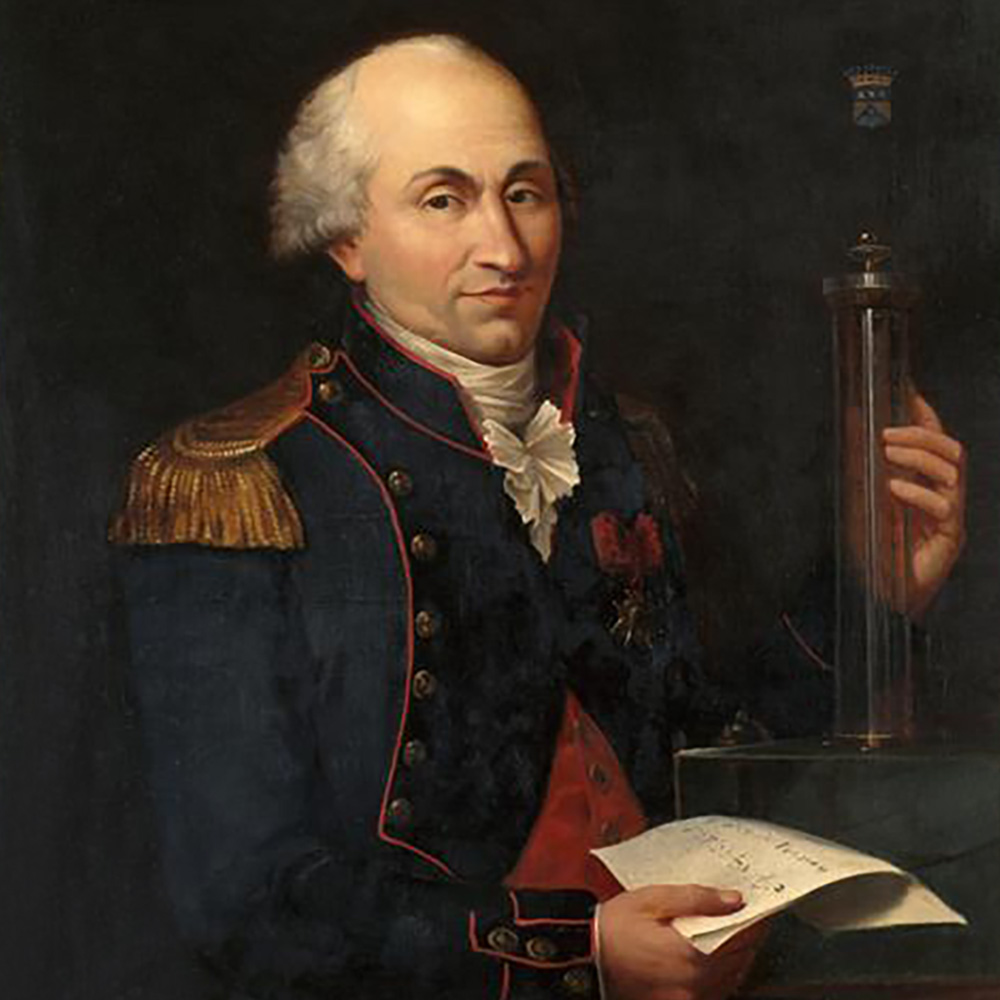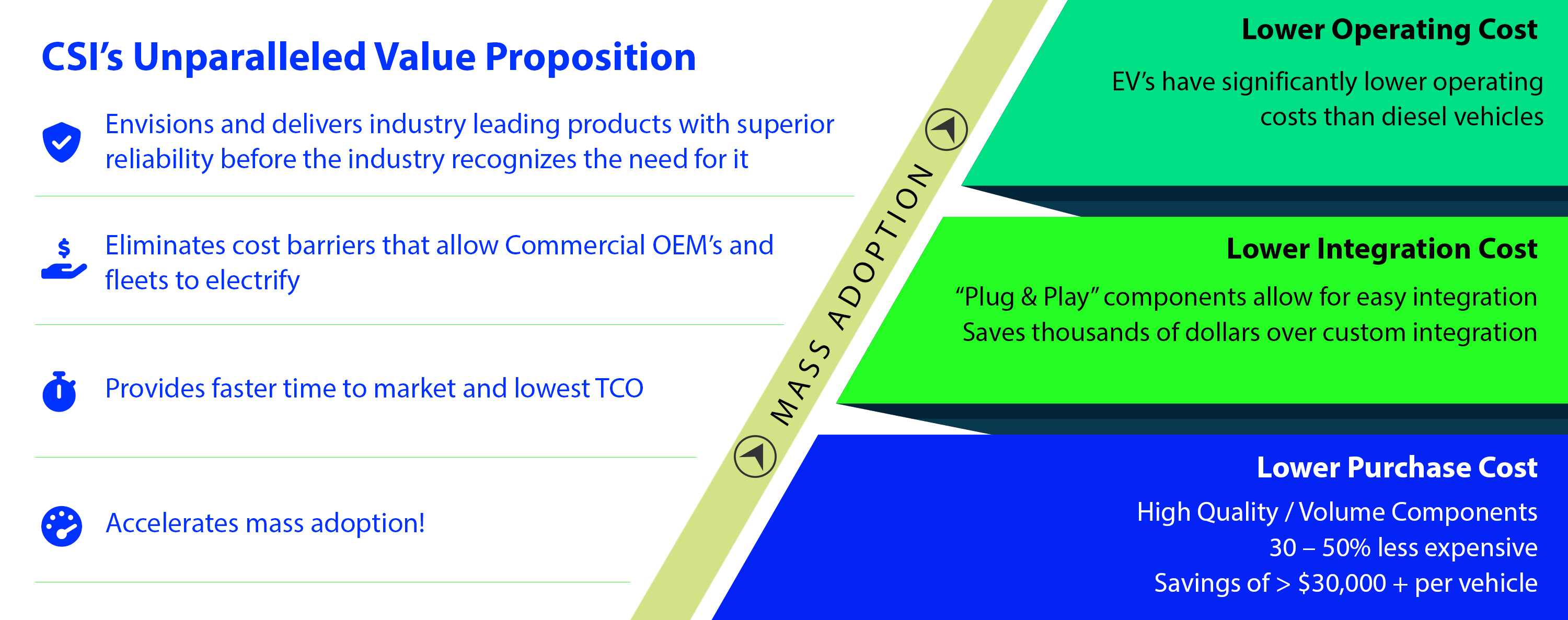Company
About CSI
After 15 to 25 years in the commercial EV industry and seeing the challenges OEMs were experiencing to bring new EV platforms to market in North America, CSI's founders decided to start Coulomb Solutions Inc to address these challenges and to enable North American OEM's to be highly successful in launching electric variants of their commercial truck and bus platforms. Specifically, commercial electric vehicles in North America were not able to meet total cost of ownership goals of large fleet operators. As a result, those same large fleet operators would only purchase a small number of electric vehicles to show their support for the environment but could not justify the cost to deploy those same vehicles in large numbers.

CSI was founded to bring three main advantages to North America:
Lower Cost Components
CSI's CEO Dave Mazaika had been involved in many international programs for commercial electric vehicles and was very impressed by the highly successful programs in China. China currently has over 1.5 million commercial electric vehicles and has established and grown this program over the last 12 years. As such they have built up a large production base for highly reliable battery systems and high quality accessory products at commercially viable prices. In one of these programs, Mr. Mazaika was introduced to Mr Lining Zhou, who was the CATL executive in charge of North American product development. CATL was interested in addressing the US commercial EV market, but was not familiar with the unique and demanding requirements of the US OEMs. After several discussions, Mr. Zhou agreed to join Mr. Mazaika to co-found CSI to bring CATL’s highly reliable battery systems and a suite of high quality accessory products to the North American market through a newly formed entity - CSI.
Lower integration costs
Having worked 25 years in the commercial EV industry, CSI’s founders knew that having a great battery system is certainly essential and a great base to work from, but if the electric accessories are not equally reliable and meeting the performance requirements of OEMs and fleet operators, then the commercial EV won’t be successful. So, the company quickly partnered with the best accessory product producers in the world and worked with them to develop North American variants of those products. Many times the core of the existing product was kept intact and only moderate modifications were needed to address US safety, power, control, or other unique requirement. Sometimes entirely new products were needed when the NA requirements were too dissimilar and so new products such as CSI’s 20kW single phase on-board charger were developed. In all cases, CSI integrated its proprietary plug and play software which enables any OEM to plug in the accessory to high voltage and CAN for communication and the component will function in a highly efficient manner as programmed using CSI’s decades of operational EV experience. Any OEM wanting to use their own operating method can elect to do so, but they no longer have to wait to develop all the software to operate the wide variety of accessory products. Also instead of each OEM having to develop their own software to operate and control these variety of accessory components and validate it with their vehicle control unit, now CSI’s software can support tens of OEMs enabling them all to skip this process. Using CSI’s proven software greatly shortens the development cycle for a new EV platform often shaving 6-12 months off the typical development timeline.
Lower operating costs
Finally, CSI is lower fleets operating costs through a combination of low vehicle operating and maintenance costs. Operating commercial vehicles on electricity is far less expensive than operating on petroleum fuels. A typical Class 8 truck on diesel fuel would run about $1/mile with today’s diesel and DEF prices. An EV version at 2.6kWh per mile and $0.15/kWh would only cost $0.39/mile. EV maintenance is also substantially lower than` conventional vehicles as EVs do not have complex emission control systems (SCR and particulate traps). In addition EV braking is done largely using regenerative braking using the motors to recapture energy of motion instead of burning up the energy in brake pads. It is very possible and in fact likely that an electric commercial vehicle will not need a brake job in the life of the vehicle. EVs also do not have fuel systems or any high temperature cooling systems that require maintenance. This combination of lower running costs on electricity and significantly lower maintenance costs will substantially lower operating costs of commercial EVs.
CSI is the ONLY company providing:
CATL Battery Systems
North American solution provider for CATL battery systems for commercial EVs
World Class Smart EV Accessories
Complete suite of Plug and Play smart accessories enables extraordinary performance and fast time to market
Expert EV Engineering
CSI decades of EV experience makes our partners’ vehicles exceptional
CSI breaks down the cost barriers and accelerates mass adoption of commercial EVs
• Lowest Total Cost of Ownership
• Lower cost components
• Lower integration costs
• Lower operation cost

